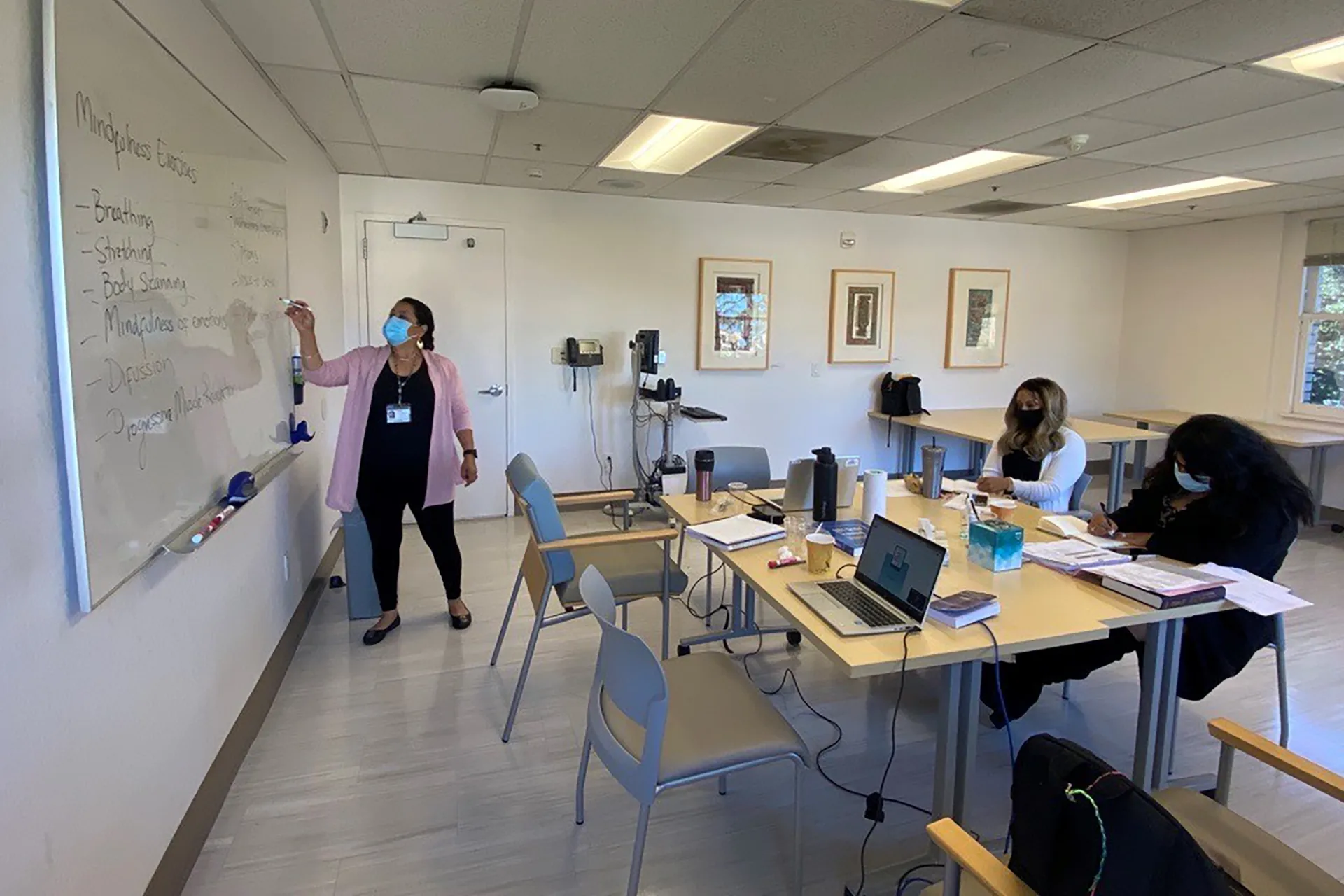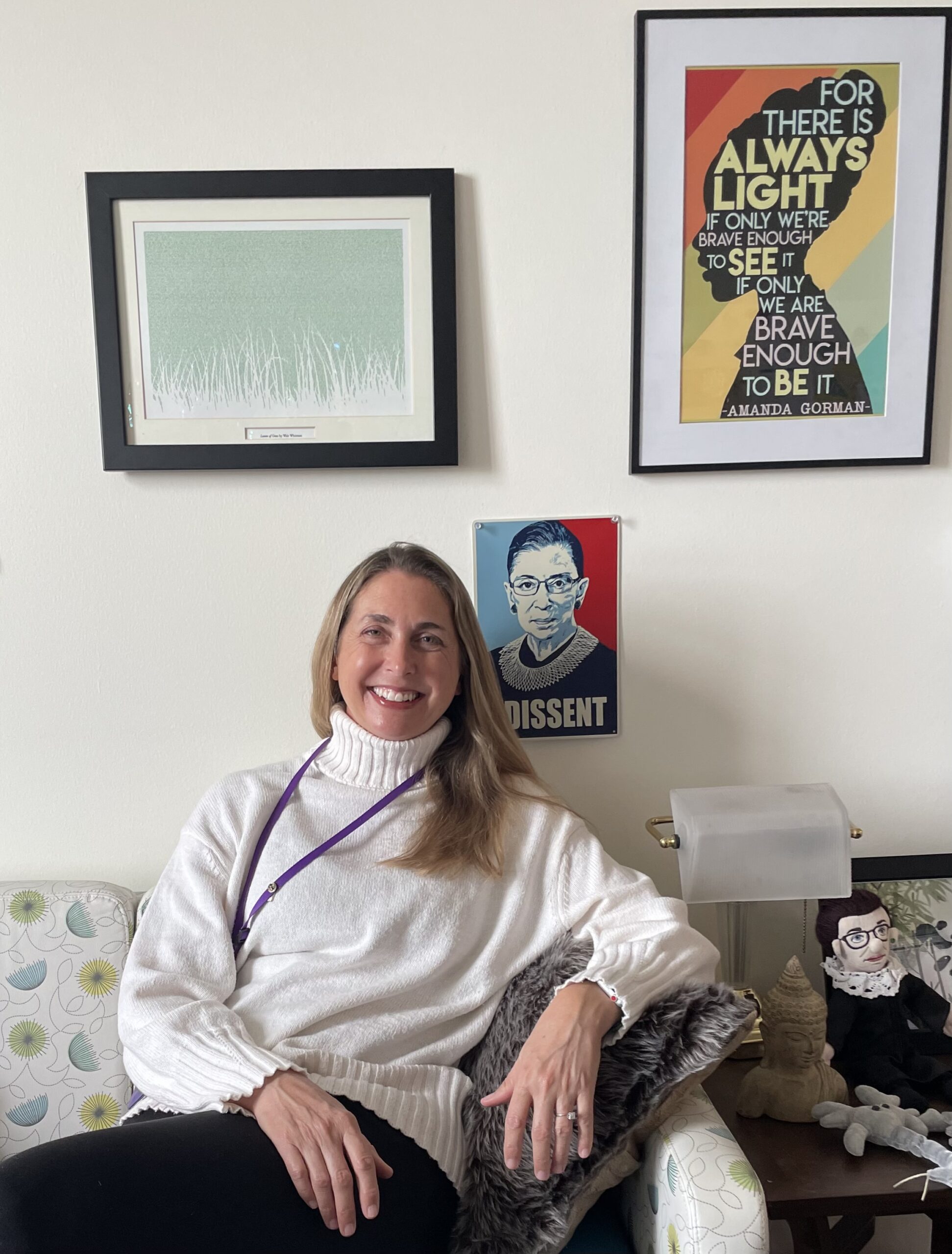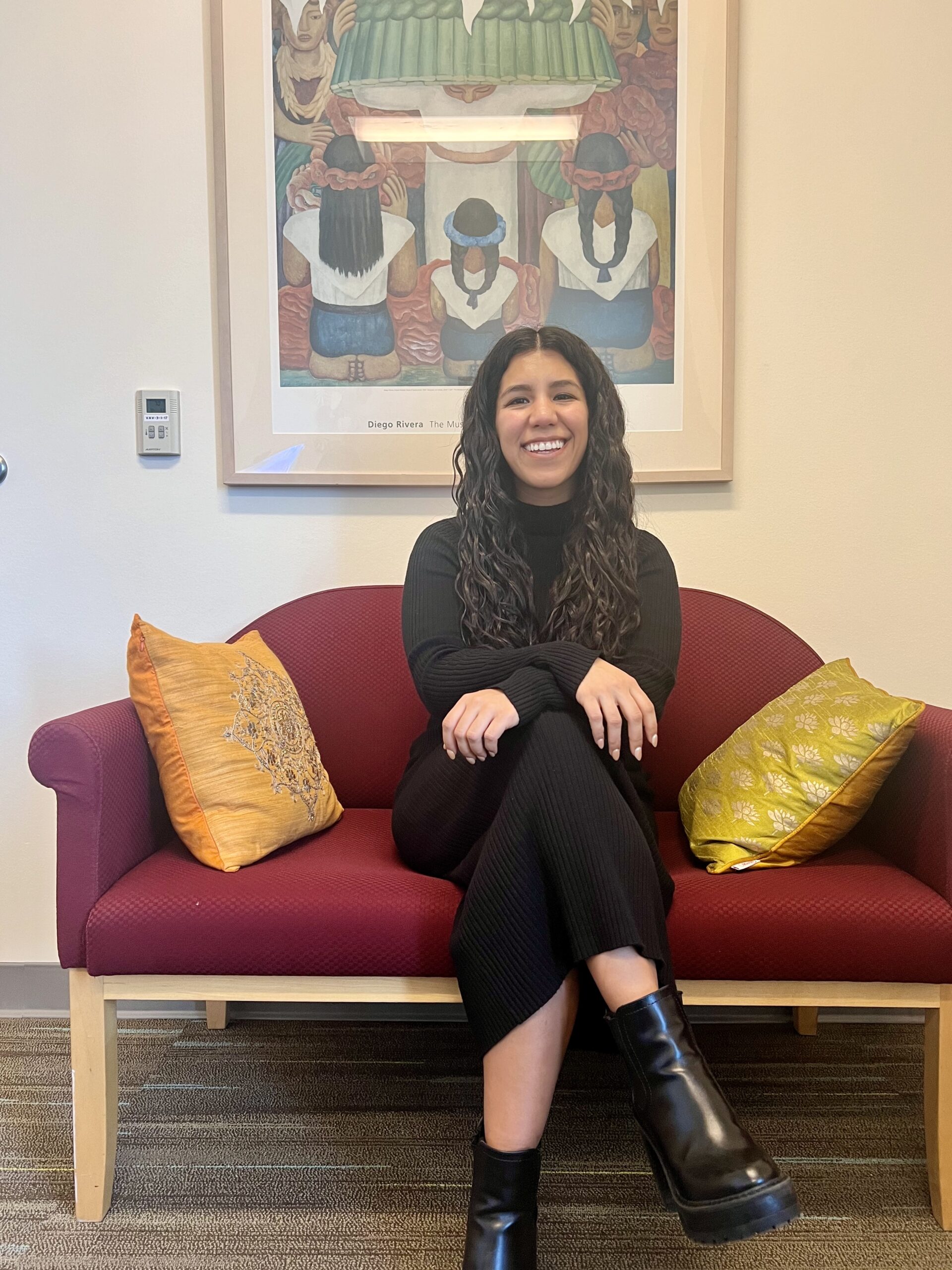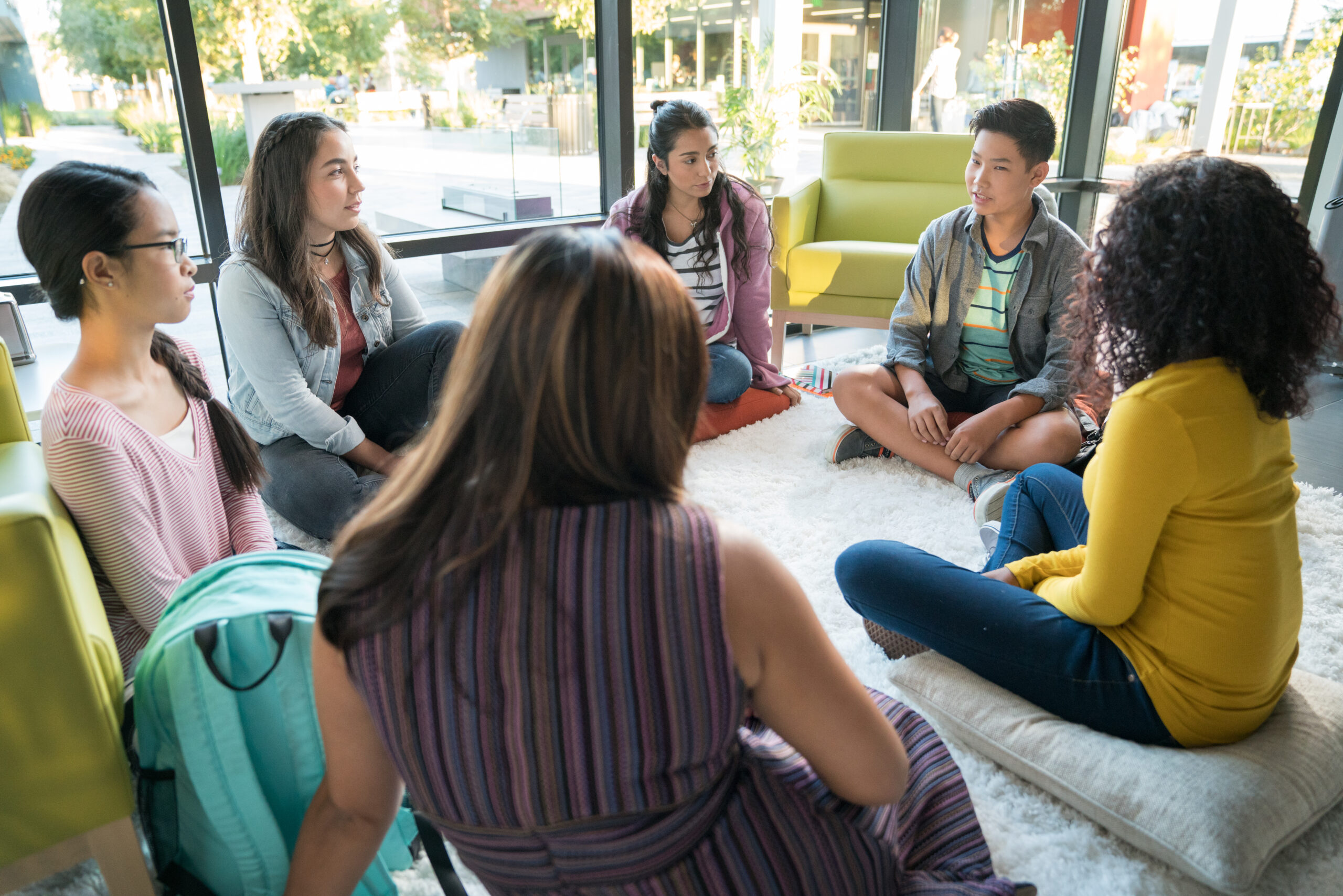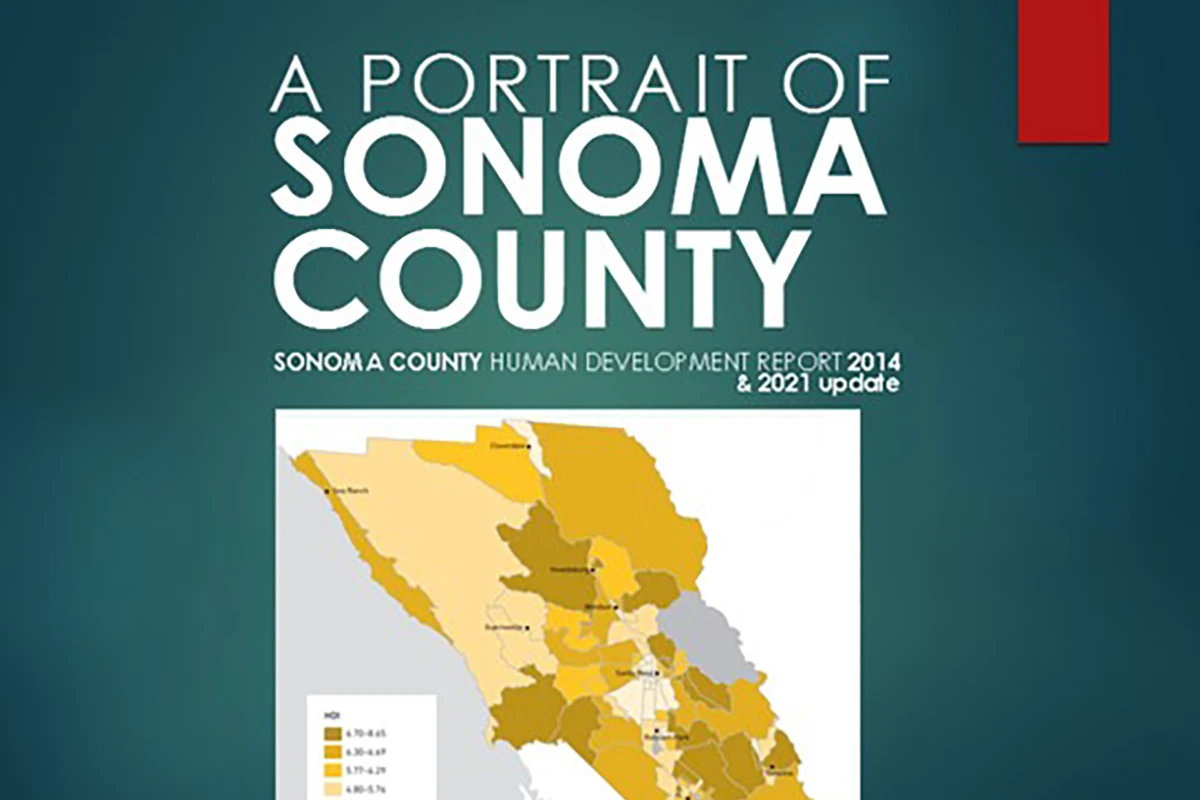This month, we are thrilled to spotlight the Kaiser Permanente Mental Health Training Program’s Bilingual (Spanish) Training Program in Oakland, and some of the wonderful people associated with it. This program aims to provide an outstanding training opportunity for future therapists invested in serving Spanish speaking patients in our community and address the increasing need for culturally sensitive, bilingual, skilled therapists for the LatinX population. The Bilingual Training Program was launched in 2016 by Patrizia Meunier, LMFT (she/her), who was working as a therapist and clinical supervisor in Outpatient Mental Health in Oakland. The program started with just one Post Master’s Fellow training in both Spanish and English in 2016 and has since grown to be a specialty training track with multiple positions three Kaiser clinics (San Jose, Vallejo, and Oakland) and the Kaiser Permanente Counseling Center.
 Patrizia shared that her personal experiences as both an immigrant and a professional who provides bilingual mental health services were the inspiration behind the development of the Bilingual Training Program. As an immigrant, Patrizia experienced first-hand how challenging it can be to engage in your own health care when providers do not speak your language or understand your values and culture. She reflected on how much more relaxed and reassured she felt when interacting with health care providers who shared a connection with her culture, or who presented with more cultural humility or interest in her immigration history. As a professional, she had also been on the receiving end of heartfelt gratitude and relief expressed by monolingual Spanish-speaking and bilingual patients when she was able to provide services to them in their preferred language. Patrizia also uniquely understands the challenges associated with developing a career and professional identity in a foreign country. These combined experiences motivated her to create a training program designed specifically to reflect these needs, both for therapists in training and for patients.
Patrizia shared that her personal experiences as both an immigrant and a professional who provides bilingual mental health services were the inspiration behind the development of the Bilingual Training Program. As an immigrant, Patrizia experienced first-hand how challenging it can be to engage in your own health care when providers do not speak your language or understand your values and culture. She reflected on how much more relaxed and reassured she felt when interacting with health care providers who shared a connection with her culture, or who presented with more cultural humility or interest in her immigration history. As a professional, she had also been on the receiving end of heartfelt gratitude and relief expressed by monolingual Spanish-speaking and bilingual patients when she was able to provide services to them in their preferred language. Patrizia also uniquely understands the challenges associated with developing a career and professional identity in a foreign country. These combined experiences motivated her to create a training program designed specifically to reflect these needs, both for therapists in training and for patients.
Research regarding mental health treatment and prevention in the LatinX community reflects a need for specialized care, as well. According to research, the LatinX community faces unique barriers to accessing traditional individual psychotherapy, and often feel discouraged from seeking services early on when symptoms first appear (American Psychiatric Association (2007) Mental Health in the Hispanic/LatinX Community). One of the main barriers to care is language; Spanish-speaking patients may feel uncomfortable in a therapy session with an interpreter present, worry about being misunderstood, or simply feel reluctant to disclose personal information. Additionally, there are modalities of treatment that can be more appealing to the LatinX population, such as family-centered therapy or community-based services that offer more cultural flexibility.
The KP Bilingual Training Program is centered on addressing the specific cultural needs of this population and helps prepare KP clinical staff to offer high-quality and intensive mental health services for the LatinX community. The program prepares future clinicians to provide high quality, evidence-based clinical services for both the LatinX and the English-speaking populations by providing clinical supervision and instruction in culturally responsive therapy services in both Spanish and English. In a community where over 30% of the population identifies as Hispanic/Latino/LatinX, there is a greater need than ever for culturally sensitive, skilled bilingual therapists in California.
 Patrizia shared that one of the aspects of the program she has enjoyed the most over the years has been observing the bilingual trainees feeling “seen” and proud of their professional development. Fellows often return to seek employment in the department and contribute further to the training program. In fact, 70% of the trainees who have graduated from this program are presently employed as bilingual therapists within Kaiser Permanente clinics.
Patrizia shared that one of the aspects of the program she has enjoyed the most over the years has been observing the bilingual trainees feeling “seen” and proud of their professional development. Fellows often return to seek employment in the department and contribute further to the training program. In fact, 70% of the trainees who have graduated from this program are presently employed as bilingual therapists within Kaiser Permanente clinics.
Patrizia Meunier (she/her): for starting the Bilingual Training Program in 2016 and providing an outstanding training opportunity for future bicultural/bilingual (Spanish) therapists who are invested in serving Spanish speaking patients in our community and addressing the increasing need for culturally sensitive, bilingual skilled therapists for the Hispanic population. Patrizia organized the pilot work to expand the bilingual program in San Jose, Vallejo, and the Kaiser Permanente Counseling Center.
Veronica Ochoa for being an awesome bilingual and bicultural supervisor and Training Director, for teaching “Terapia Dialectico Conductual (DBT)” in Spanish for years in the program, and for being so committed in the development of new clinicians who can serve the LatinX population.
Rebeca Zaragoza (she/her) and Sandra Martinez Silva, 22-23 trainees in the Bilingual Program: for collaborating (within the Bilingual Program) to bring to life the transdiagnostic therapy group (in Spanish) “Enrequiciendo tu vida.” Sandra created an outstanding community project presentation to high schoolers where she inspired Latino/a/X students by sharing her story and how she decided to get on the study track to become a Social Worker for her community. Rebeca did a wonderful job in mentoring KP Launch Spanish speaking students this summer. As part of this project, Rebeca organized encounters with medical doctors and psychiatrists, who identify as Latino, who discussed their paths to becoming medical professionals and how they help their community.
Mari Tellez (they/them) a former fellow of the bilingual (Spanish) training program, presently a Kaiser employee: for delivering culturally competent care to Transgender Members in both Spanish and English languages and breaking barriers in patient care.

